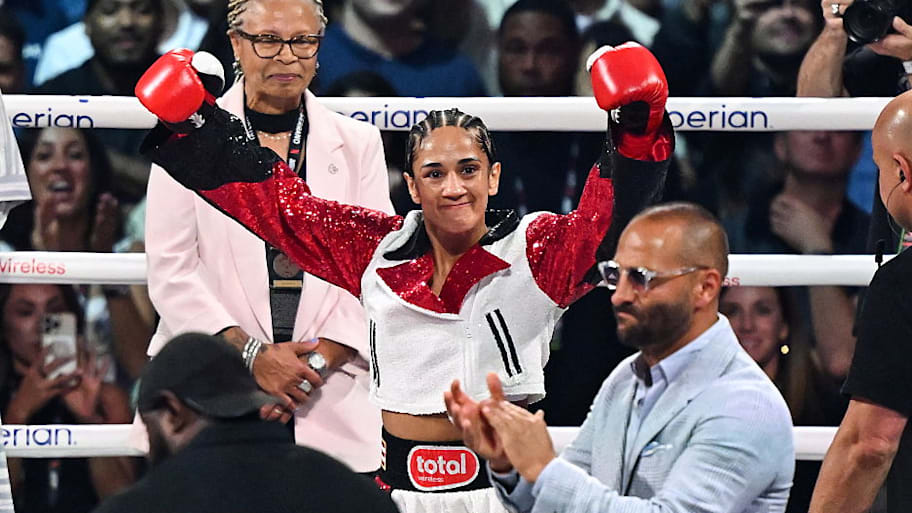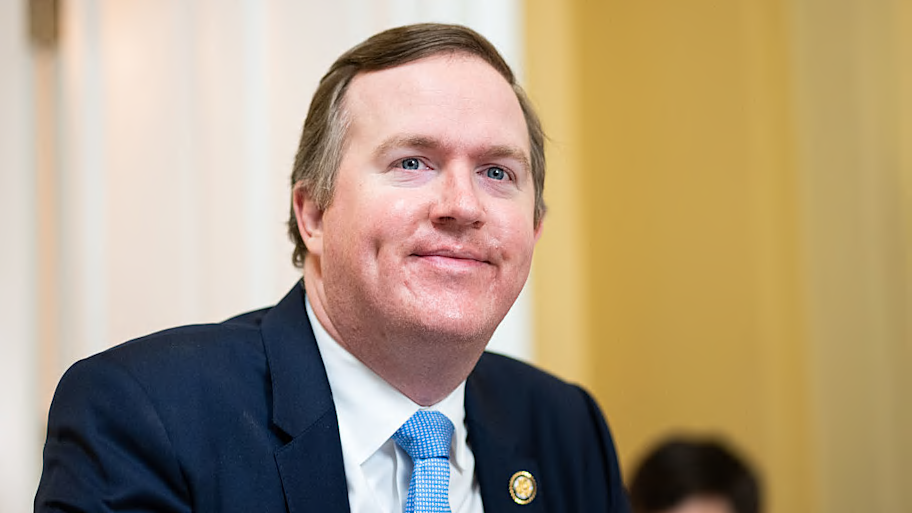
Congress is introducing bipartisan legislation on Wednesday to amend the Professional Boxing Safety Act in what would be the first major update to federal boxing legislation since the Muhammad Ali Boxing Reform Act in 2000.
The new bill, the Muhammad Ali American Boxing Revival Act, introduced by members of Congress Brian Jack (R-Ga.) and Sharice Davids (D-Kan.), would add supplemental provisions to current legislation that would allow for the creation of alternative systems called Unified Boxing Organizations (UBOs). The new provisions would allow UBOs to operate events, promulgate ratings, and award UBO championships—not unlike how the Ultimate Fighting Championship (UFC) operates its mixed martial arts promotion.
The bill also attempts to address significant issues in the sport. It sets a national minimum payment for all professional boxers at $150 per round. Six states have minimums below $150 while most have no minimums at all. It also creates a national minimum of $25,000 for health coverage for injuries sustained during a fight, higher than current minimums in 43 states.
The legislation is endorsed by the Association of Boxing Commissions and Lonnie Ali, the wife of Muhammad Ali, the boxing Hall of Famer who passed away in 2016.
“The sport of boxing provided a pathway for Muhammad to become a global sports and cultural icon,” said Lonnie Ali. “Boxing elevated his public platform and gave voice to his fight for civil rights. If Muhammad was with us today, he would want to ensure the sport of boxing in America remained strong and viable for generations to come, providing opportunities for other athletes to pursue their goals and dreams, just like he did. Given its enhanced protections for boxers, I believe Muhammad would be proud to have his name associated with this bill.”
In an interview with Sports Illustrated, Jack said that the Ali Act would be unchanged. The goal, Jack says, is to clarify some ambiguities in the original law. That ambiguity “has stifled investment and discouraged innovation within this space,” says Jack.
The UBO system would not replace boxing’s current structure. It would operate as a separate, parallel system. Fighters entering the pro ranks could choose to participate in the current model, which sees fighters compete for rankings and titles from the four major sanctioning bodies, or the more streamlined UBO system.
“The thrust here is we have a system and if you want to stay in that system, you can,” says Jack. “We are not touching the Ali Act. Instead, we are adding an additional section to U.S. code that allows for the creation of UBOs and we’re touching the PBSA [Professional Boxing Safety Act] by amending it.
“I kind of describe it like on a whiteboard you’ve got a big circle with the sanctioning organization model. Then you’ve got a UBO model. That’s another circle. And the only overlap, so to speak, is that amending for minimum fighter pay and specified health coverage. That applies to both models.”

The legislation is being introduced just as UFC CEO Dana White is preparing to promote his first boxing event. In March, White unveiled long anticipated plans for TKO Group Holdings—the parent company of UFC and WWE—to partner with Saudi Arabian official Turki Alalshikh to form a new boxing promotion.
MORE: Dana White, Turki Alalshikh Aiming to Upend Boxing’s Fractured Foundation
Alalshikh, who also owns Ring Magazine, has invested heavily in boxing the last two years. The promotion’s first event will be the anticipated super middleweight showdown between Saul “Canelo” Álvarez and Terence Crawford on Sept. 13. A “league” is expected to begin in early 2026.
“Everybody knows the format—the best fight the best," White said in March. "You work your way up the rankings, and once somebody breaks into the top five [and] there is no question [about] who the best five guys are in each weight class, they fight it out. And once somebody holds that belt, you don’t need three letters in front of the belt. Whoever has that belt is the best in the world in that weight class. It’s a very simple model.”
In UBOs, fighters would receive additional benefits, including health coverage for those who get injured during training, and be enrolled in comprehensive anti-doping testing programs. There would also be strict anti-betting policies and fighters would not be required to pay sanctioning fees.
By introducing the bill before the August recess, Jack hopes to move the bill along quickly. A hearing could come in the early fall with a vote before the end of the year. In Davids, a former MMA fighter, Jack has an influential ally on the Democrat side of the aisle. Both will spend the coming weeks educating colleagues on Congress’s history in boxing regulation.
“I’m going to be making a flurry of phone calls,” says Jack. “I’ll leave it to my Democrat counterpart to work her side of the aisle and I’ll work mine. I think the hope is that the boxers and people that are invested in this see it and they get excited about it and say, ‘Hey, this is more opportunities, more choice for us.’ They reach out to their members of Congress and tell them, this is good legislation, let's move it and let's do something bipartisan in this Congress and let's let sports guide the way to what I hope to be a return to bipartisanship.”
This article was originally published on www.si.com as New Bill Aims to Establish UFC-Type Structure for Boxing.







